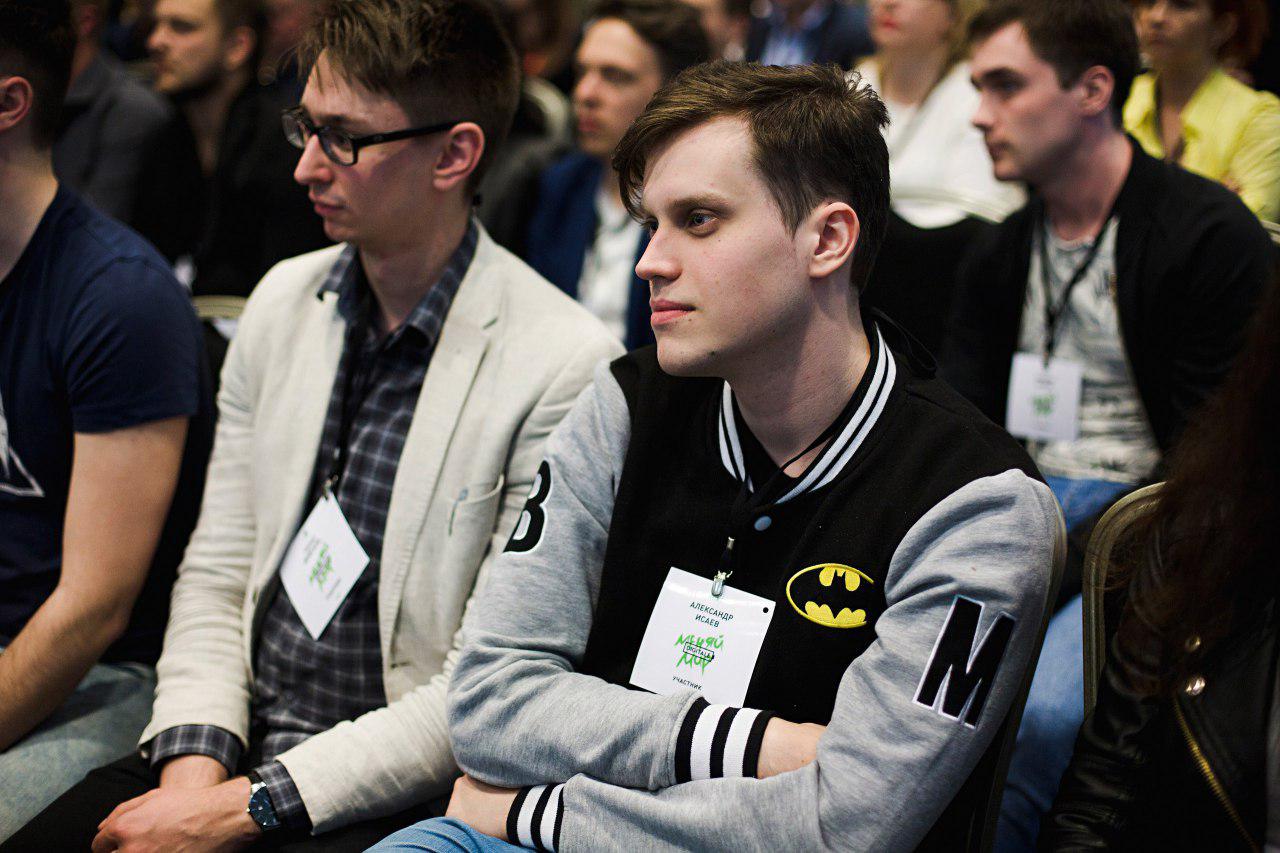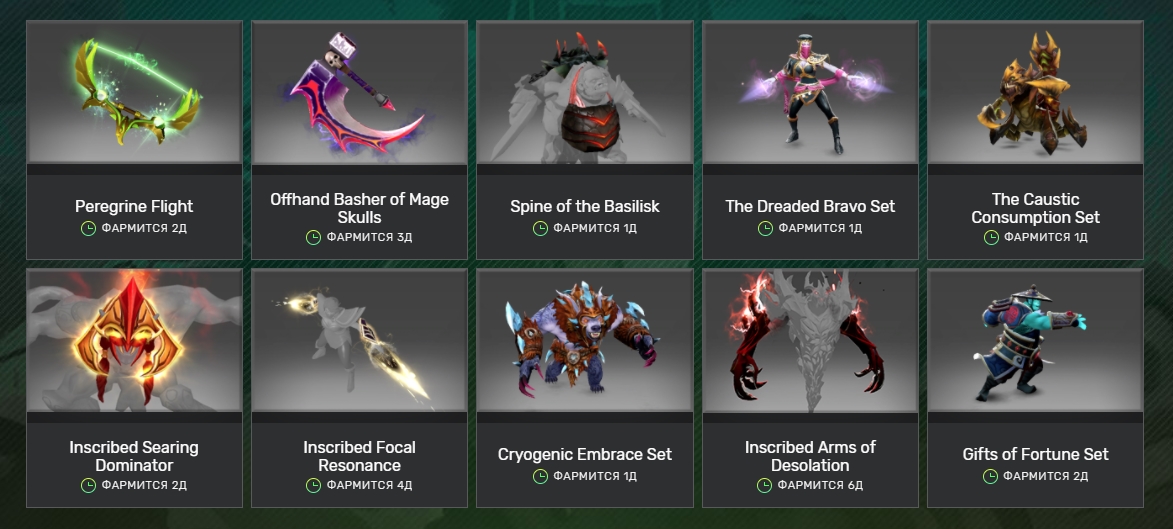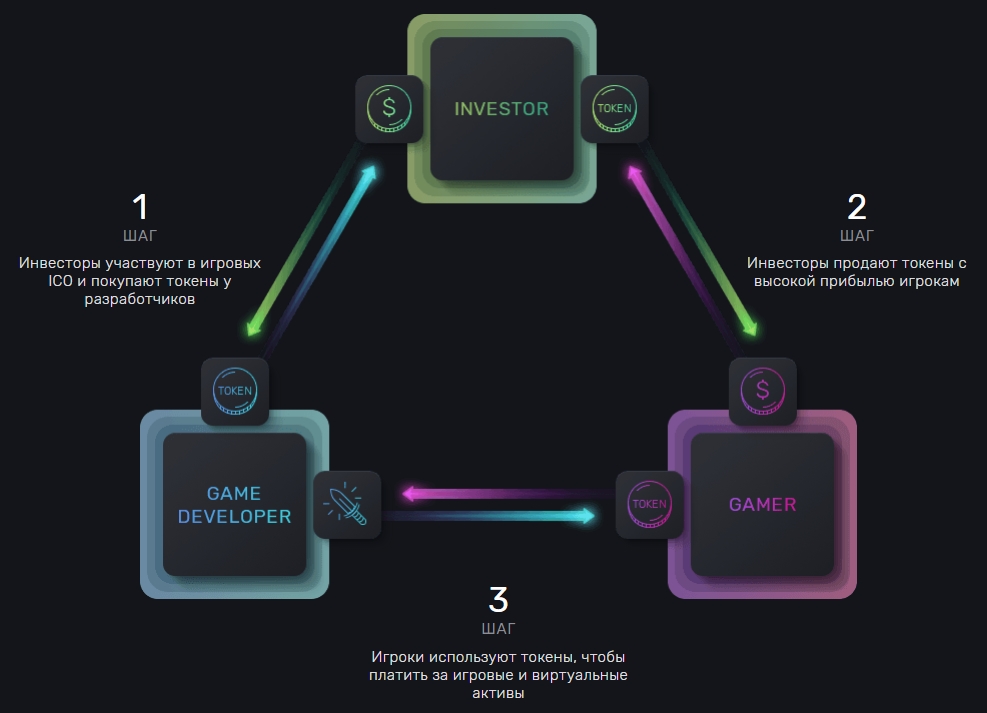How developers from St. Petersburg came up with a blockchain platform for players, developers and investors
The gaming blockchain platform of PHRI graduates sold $1.3 million worth of tokens in a month. Its authors, who are not yet thirty, are sure that in the next six months the figure will be much higher.
For Taras Dovgal and Alexander Isaev, young entrepreneurs from St. Petersburg, 2017 ended successfully. They launched and brought to plus Game Machine, a blockchain platform that allows players to earn on in-game content, and developers to attract investments.

Taras Dovgal and Alexander IsaevAt the junction of HYPE and your own experience
The question “How to combine blockchain and games?” Taras and Alexander asked in March 2017. Former students of the FRII and ITMO, who had previously created the agency for the development and promotion of hakk sites, wanted to take up the implementation of a solution at the junction of two topics of interest to them.
They did not deal with cryptocurrencies before the startup was launched. They were only interested in topics that ceased to be niche in the summer of 2017: until the end of last spring, the term blockchain remained unknown to a wide audience. This also concerned the concept of generating money using computer computing – mining, in which any PC owner can create several units of cryptocurrency.
Entrepreneurs were much better acquainted with the game theme. They were already working on creating a game service that was aimed at fans of Counter-Strike: Global Offensive and World of Tanks.
Starting from the concepts of mining and their own user service, the partners unexpectedly came up with the idea of an infrastructure that would enable players to earn on in-game content using cryptocurrency mining.
The essence of the basic concept
The main tool of mining are special farms – computers with a large number of powerful video cards that constantly perform calculations, thanks to which the cryptocurrency is obtained.
Gamers also have powerful graphics accelerators, whose power is idle when users are not playing. Players are also very interested in getting games and paid content without paying.
Knowing this, Taras and Alexander came up with a model that allows players to get valuable items in games for free for providing access to the service to computer power.
“The idea came spontaneously. There is mining. There are gamers with powerful hardware. So why not simplify their access to new technologies and give them the opportunity to earn on their favorite in–game clothes,” says Alexander.
Such a scenario is beneficial for all parties. By creating a cryptocurrency, users receive paid content without spending out of pocket. The developer receives money for purchased games or things in them. As for the service acting as an intermediary, the commission from the transaction remains with it. The Game Machine creates the latter by adding an additional amount to the initial prices for goods.

This is what the Dota 2 store looks like in the Game MachineDevelopment of the idea
The gaming market is going through a difficult time today. It is oversaturated with offers. In order to maximize profits and increase the tail of sales, developers are forced to switch to a service model of project development and fritupley. But within the latter, no more than 2-3% of gamers are ready to pay for content.
Against this background, the service of Taras and Alexander looks like one of the solutions that can increase the percentage of paying users. That’s just the ambitions of the partners go further. They also want to give small projects the opportunity to receive financial assistance during development.
“Even at the first stages of working on the project, we moved from the idea of a mining platform for gamers and the possibility of additional monetization of projects by large market players to the fact that small developers also need help with monetization,” Alexander shares.
To do this, it was decided to simultaneously develop a crowdfunding service built on ICO, a tool for attracting investments by selling a fixed amount of cryptocurrency to investors.
The partners wanted the developer who started creating the game to use the Game Machine to create his own cryptocurrency within the system, link prices for in-game objects to it, conduct an ICO and attract investors.
Project implementation and first results
It took the partners two months to create the backbone of the API development team, on the basis of which further solutions would be built. “The hardest thing was to find programmers,” Alexander recalls. The rest of the team – the guys responsible for attracting traffic, working with the community and testing, were found after the seed investment stage, which was in June.
The preliminary launch of the mining application for gamers (one of the three clients of the platform) took place as part of an open beta test in November. Thanks to him, the entire development of the Game Machine instantly became self-sufficient.
The developers do not name the business angel who supported the team, but they share numbers. The total investment in the project amounted to $ 200 thousand. Of these, $80 thousand was invested by the partners themselves, taking them from their old business. The remaining amount just came from the pre-seed round (the first stage of attracting external financing).
In December, the ICO began, during which the Game Machine sold 3.2 of its own tokens – GMIT – in the amount of $1.3 million by January.

When everything is ready, the system should work like thisPlans
Taras and Alexander are not planning to return to hakk, which allowed them to engage in a new service. “Now we are completing old projects in it. Further, if we take anything for development, then only very interesting orders,” concludes Alexander.
Now all their attention and efforts are focused on creating the remaining two Game Machine clients – for developers (allows you to monetize gamers, issue tokens, launch ICOs) and investors (allows you to see which projects are successful with gamers and buy/sell currency).
In addition, the team spends a lot of effort on finding new partners among developers (both large companies and indie developers) who will be able to participate in early access.
Taras and Alexander are sure that Game Machine will not only help games with monetization, but also increase the visibility of projects, because they will get to the showcase of the service that gamers work with.
The launch of the functionality for developers and investors is scheduled for the fourth quarter of this year.